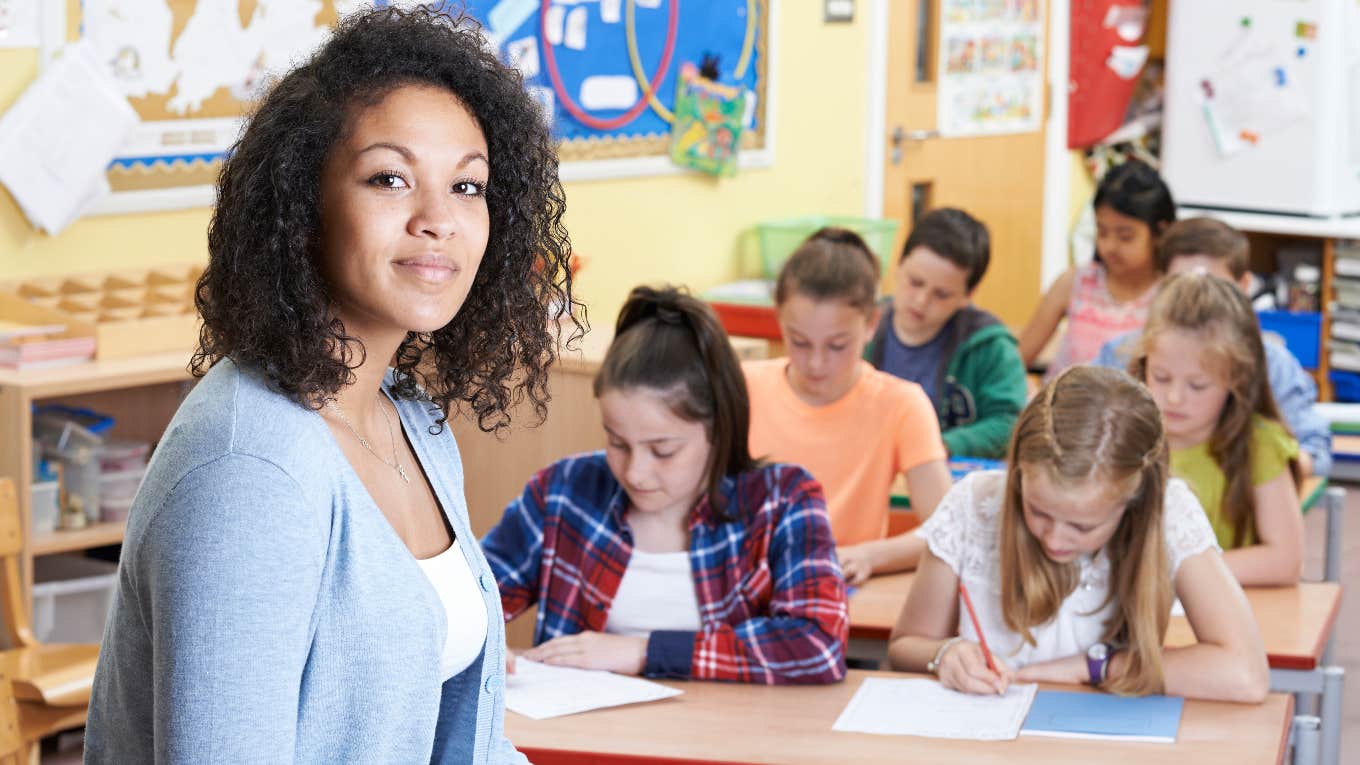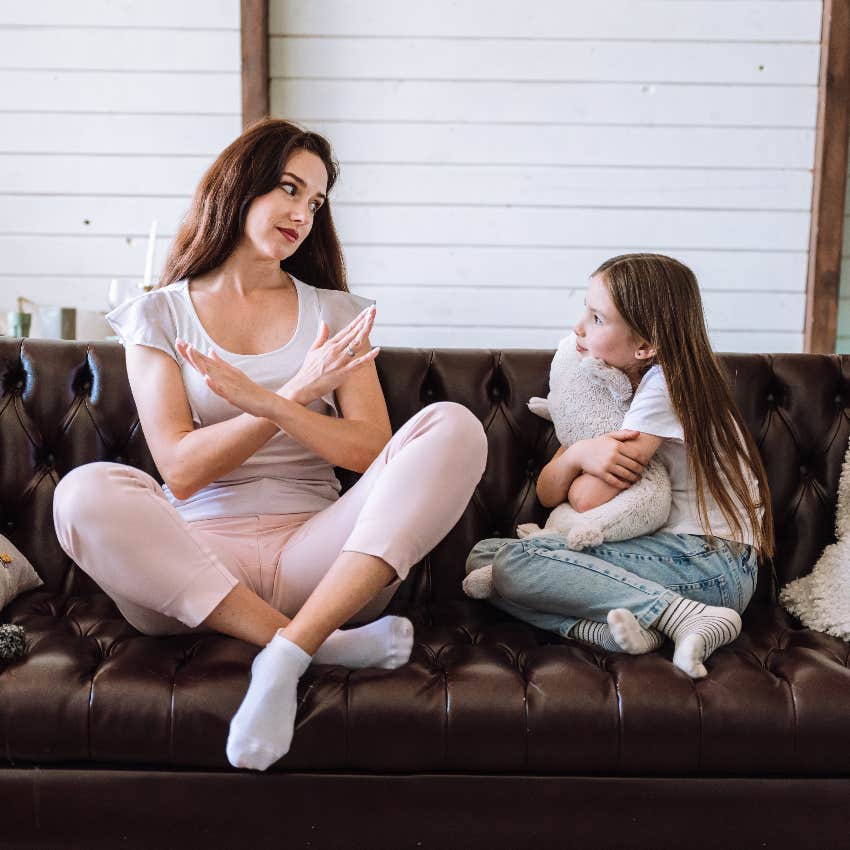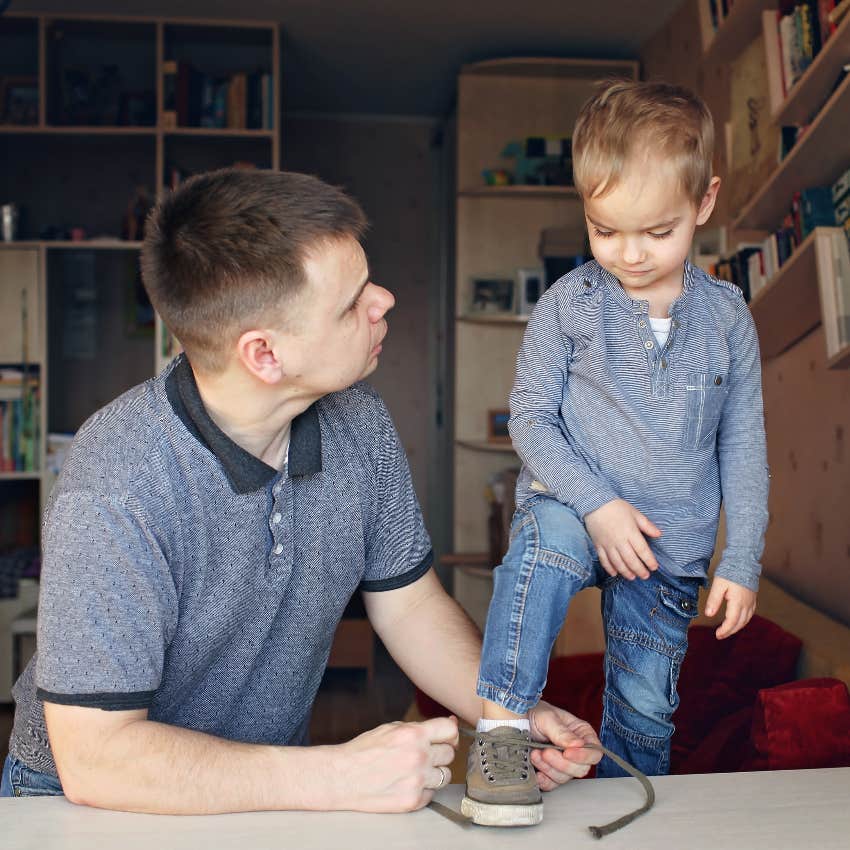5 Teachers Share The One Thing They'd Say To Parents If There Were No Repercussions
"We've said a million things in our heads over the years, but without consequences? I'd say them out loud."
 SpeedKingz | Shutterstock
SpeedKingz | Shutterstock In the r/Teachers subReddit, an educator opened up a discussion about the controversial things they wish they could say to parents but must keep to themselves for the sake of professionalism — and to keep their jobs.
5 teachers revealed the one thing they’d say to parents if there were no repercussions:
1. ‘You should’ve read your kids a bedtime story.’
While there’s an ongoing debate about reading levels and teaching responsibilities online, most teachers in the thread agreed that parents have an obligation to “get the ball rolling” when it comes to reading comprehension and cultivating a love for reading at home.
Studies show that parents reading to their kids at home not only helps them build cognitive skills but can also help young children learn about the world, develop empathy, and gain emotional intelligence before standardized reading lessons start in the classroom.
Yet, many teachers today complain about their kids' reading levels — a potential sign they were never read to at home.
“You should have read your kid bedtime stories and shouldn’t have stopped once the books had chapters," one English teacher wrote.
"Please read to your kids. Take them to the library. Sign them up for summer reading programs. Give them books instead of tablets," another Redditor added. "Help them find material that is suited to their interests.
2. ‘Tell your kids no.’
 brizmaker | Shutterstock
brizmaker | Shutterstock
Many teachers on the thread highlighted the importance of saying no and disciplining children at home, particularly given the influx of misbehaving students at school. Teachers have found themselves constantly reprimanding bad behavior rather than focusing on the educational and cognitive development of their students.
"Tell your kids no. Tell them no, often," one user insisted. "It will not traumatize them."
"Tell your child 'no,' set limits and boundaries, and use consistent discipline," another commenter echoed.
3. ‘You’re the parent. You have to make the hard decisions.’
While teachers have adopted the role of reprimanding bad behavior and “parenting” in the classroom, their true job responsibility should be focused on the education of the students. Especially given the failings of the educational system and standardized curriculum at large, they should be hyper-focused on teaching.
Parents also shouldn't let their children make all the decisions either.
Many teachers in the thread agreed. “Being a parent means you make the hard decisions," one commenter wrote. "You decide bedtime. You decide screen time. Children cannot make these choices yet because they are children."
"So many parents seem to think “gentle parenting” means letting them make all the choices, and it just isn’t," they continued. "Grown-ups have to be grown-ups and do the hard things so kids can be healthy, safe kids."
4. ‘You are raising a future adult.’
"You didn’t just have a 'baby.' You are raising a future adult, who will need to be self-sufficient, responsible, polite, tolerant, and caring," one commenter insisted. "Stop babying your kids! Teach them how to tie their shoes, say 'please and thank you,' and that they aren’t always right and/or in charge!
 Maria Symchych | Shutterstock
Maria Symchych | Shutterstock
If parents don't fix behavioral issues early, they are setting their children up to struggle in school and when they get older.
“It’s pay now or pay later," another agreed. “If you don’t deal with bad behavior when they’re 6, you’re going to deal with it at 36.”
5. ‘Laziness is learned at home.'
While burnout, anxiety, and fear are often mislabeled as “lazy,” the truth is that laziness stems from learned behavior — or a student’s home life, at least according to these passionate teachers.
Whether it’s learned behavior from parents or simply the habitual practices of their home life and family dynamic, many students pick up “lazy” habits, attitudes, and mindsets that follow them into the classroom.
“We have exciting plans that keep us busy for 90-minute blocks [at school],” one teacher wrote. “What does 90 minutes spent at home with your child look like?”
Zayda Slabbekoorn is a News & Entertainment Writer at YourTango who focuses on health & wellness, social policy, and human interest stories.

